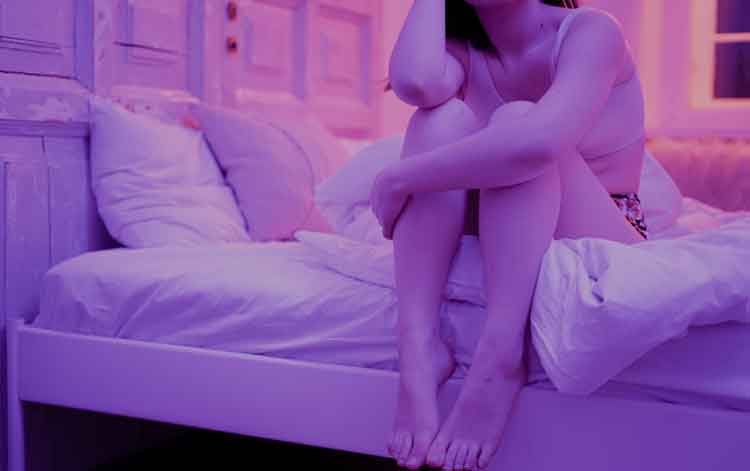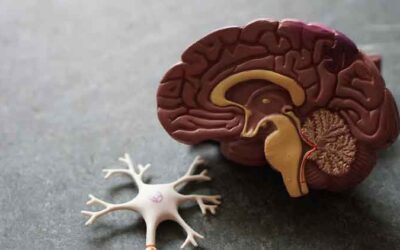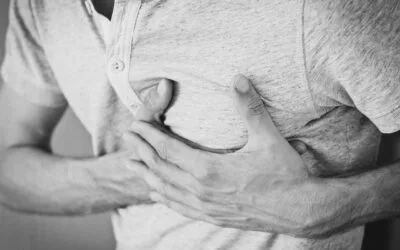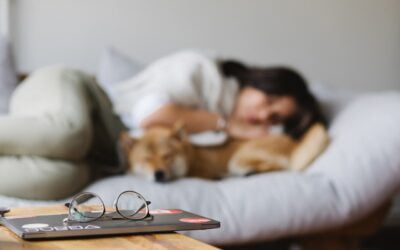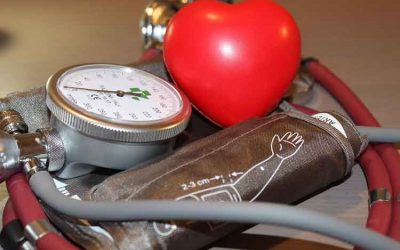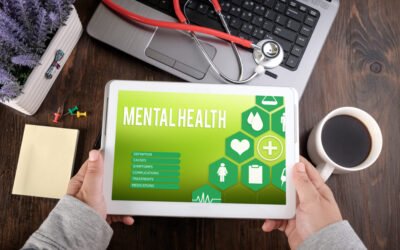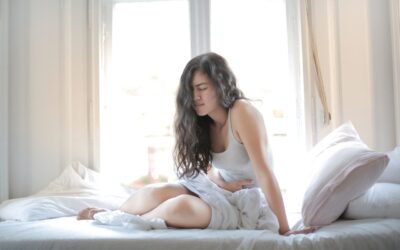People are facing several kind of health complications due to their poor lifestyle and unhealthy nutrition. Apart from that, majority of people are suffering from lack of sleep, which also known as insomnia. It can create several major difficulties in our day to day life. So, let’s get more information about Insomnia and Home Remedies for Insomnia.
What is Insomnia?
Insomnia is a sleep problem that affects the people in all over the world. A person suffering from insomnia becomes face difficulty to sleep. It can have very difficult consequences. Here a person is at risk of increasing slowness, sleep, mental and physical illness during the day. Insomnia brings a great change in the nature of a person, such as irritability, anxiety and stress etc.
Majority of the adults may experience short-term (acute) insomnia that lasts for weeks or days. This is usually caused by the effect of a traumatic event or stress. But mostly, people who experience chronic (long-term) insomnia that lasts for more than a month are caused by certain medical conditions or side effects of medicines.
Types of Insomnia.
There are two types of insomnia, those are;
Chronic Insomnia.
Chronic insomnia is a serious type of insomnia that can cause sleeplessness more than a month. In many cases this type of insomnia can also cause the side effects of any other physical illness.
Acute Insomnia.
In Acute insomnia you may face trouble of sleeping for a few days or a weeks. It is a common type of insomnia, which can also be caused by work or stress.
| Footnote. Insomnia are basically of two types, i.e., chronic and acute insomnia. Chronic insomnia is very serious as it can persist for months whereas, acute is for short duration. |
Causes of Insomnia.
The following are the main causes of insomnia;
Stress.
Concerns about family, finance, health, school and work can keep your mind active even if you are tired. Trauma or life events, such as job loss, divorce, illness or death of a loved one can be the result of insomnia.
Work or Travel Schedule.
Frequently changes in work pattern, jet latte and travelling in different time zones can disrupt your sleep cycle and cause insomnia.
Eating A Lot of Food Before Bed.
A heavy dinner can make you very uncomfortable while sleeping. Many people who eat a lot before bedtime, complain about several health related issues. This occurs when food and acid from the stomach flows into the esophagus. This is a major cause of insomnia.
Mental Issues.
Post traumatic stress disorder or anxiety disorder can also trigger insomnia. Some form of impulse control disorders may also cause stress, which eventually leads to insomnia.
Medicines.
Drugs used to treat blood pressure, asthma and some medications can several side effects including insomnia.
Other Disorders of Insomnia.
Different medical conditions such as Alzheimer, Parkinson’s disease, hyperactive thyroid, gastroesophageal reflux disease (GERD), asthma, heart disease, diabetes, cancer and chronic pain can also trigger insomnia.
| Footnote. Insomnia can cause due to many reasons. But from all those the main are the lifestyle factors. Which include stress, mental illness, work travels and many more. So before treating insomnia above mentioned problem need to be treated first. |
Symptoms of Insomnia.
- Difficulty in sleeping at night.
- Wake up during the night.
- Lack of focus on daily tasks.
- Sleep and exhaustion.
- Frequent wake up from sleep.
| Read Now: What Is Metabolism And How It Works? |
Diagnosis of Insomnia.
Doctors will begin evaluating insomnia with the help of complete medical history. A complete medical history and physical examination thorough medical evaluation are the important aspects for treatment of insomnia.
Depending on your condition, you may be prescribed the following diagnosis;
Physical Tests.
If the cause is unknown, your doctor may conduct physical tests to find out the medical problems that may be related to insomnia. Sometimes blood tests can be prescribed to check the thyroid problems or other conditions, which may be associated with lack of sleep.
Review of Sleep Habits.
In addition doctor may ask you some questions related to your sleeping pattern. However, doctor can ask you some questionnaires to determine the exact problem and the level of sleep. You may also be asked to maintain a sleep diary for a few weeks (the person in this diary maintain record of his sleep and waking time).
Sleep Study.
If you are experiencing any other symptoms of insomnia, such as sleep apnea or restless leg syndrome, then you may need to spend a night at the sleep centre (where sleeping diseases are treated). When you sleep, different tests are conducted to monitor and record your brain waves, breathing, heartbeat, eyes and other body movements.
| Footnote. Depending upon the condition, different diagnosis are prescribed by the doctor such as blood test, physical test and sleep study etc. |
Treatments for Insomnia.
If these measures do not work, your doctor may suggest cognitive practical therapy, drugs or both to relieve stress and improve sleep.
Cognitive Behavioural Therapy for Insomnia.
Cognitive Behavioural Therapy for Insomnia (CBT-I) helps you to control negative thoughts and actions which hamper your sleep. This therapy is generally recommended as the first ladder of treatment. In general, CBT-I is similar or more effective in compared to sleeping drugs.
The cognitive part of CBT-I teach you to recognize and change the causes, that affect your sleeping ability. It can help you to control negative thoughts and concerns that arouse you. Which also remove the cycle where you are worried that you will not sleep while sleeping.
The practical part of CBT-I helps you to develop good sleeping habits and remove behaviors that disrupt your sleep. These strategies include the following examples;
Stimulus Control Therapy.
This method helps to remove the factors that prepare your brain to resist sleep. For example, you set a fixed time to sleep and wake up and avoid sleeping in the daytime.
Relaxation Techniques.
Progressive muscle relaxation, biofeedback and respiratory exercise are some effective ways to reduce sleep-time anxiety. Practicing these techniques are effective to control breathing, heart rate, muscle tension and mood, so that you can relax.
Avoid Sleep During the Day.
This treatment reduces the time spent in your bed and prevents daytime sleep, causing partial sleep and making you feel very tired for the next night. Once your sleep improves, your bedtime is gradually increased.
Wake Up In A Passive State.
Contradictory objectives also called (paradoxical intention). The purpose of this therapy is to reduce the anxiety of individuals suffering from insomnia. In this treatment, the person is asked to try to wake up instead of worrying about sleep.
Light Therapy.
If you fall asleep and wake up very quickly, you can use light to balance this cycle. In the year when the days are long compare to the evening, at that time you can turn out or you can use a light box. Consult your doctor about it.
Your doctor may recommend other strategies related to your lifestyle and environment to develop your habits that promote your sleep and alertness during the day.
Medications.
Sleeping pills prescribed by the doctor can assist you. Doctors usually do not recommend sleeping pills for more than a week, but some medications can be taken for a long time. These include Eszopiclone, Lunesta, Rozerem (Ramelteon).
It can have some side effects such as increased risk of semi-consciousness and fainting during the day. So talk to your doctor about these drugs and other possible side effects.
Other Means of Medications.
Non-prescribed sleeping drugs contain antihistamines, which can make you dull, but their regular use may be harmful for you. Consult your doctor before taking these medicines. Antihistamine can have many side effects, such as sleepiness during the day, dizziness, confusion, loss of consciousness and difficulty in urinating. Which can be even more severe in middle-aged individuals.
Alternative Medicine.
Most of the people are avoid to treat insomnia and try to deal with this problem by the help of self-medications. However, it may cause several health issues, such as;
Melatonin.
This supplement are found in the medical store to get relieve from insomnia. Use of Melatonin is usually considered safe for a few weeks, but no convincing evidence exists which prove that melatonin is an effective medicine for insomnia. Therefore, no information are available about the safety of its long-term use.
Valerian.
This dietary supplement helps in insomnia and it has a mild effect. However, there is a lack of studies regarding this supplement. Therefore, you must consult with your doctor before using it. Those who are use for prolong time may suffer from liver damage.
Acupuncture for Insomnia.
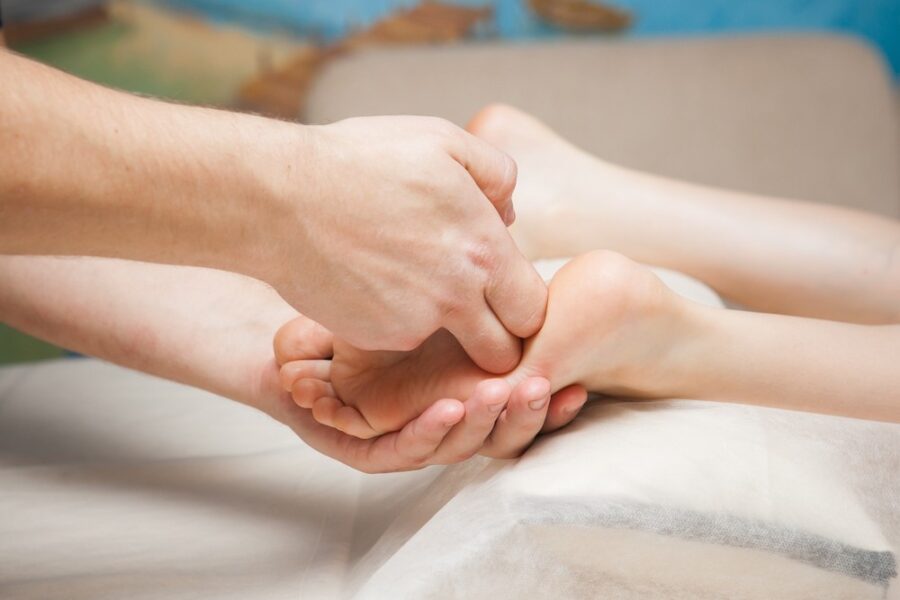
There is some evidence that acupuncture may be beneficial for insomnia, but its required more research. If you choose acupuncture with your traditional treatment, then it may be a good option for you.
Yoga for Insomnia.

Some studies show that regular practice of yoga or tai chi can help to improve sleep quality.
Meditation.
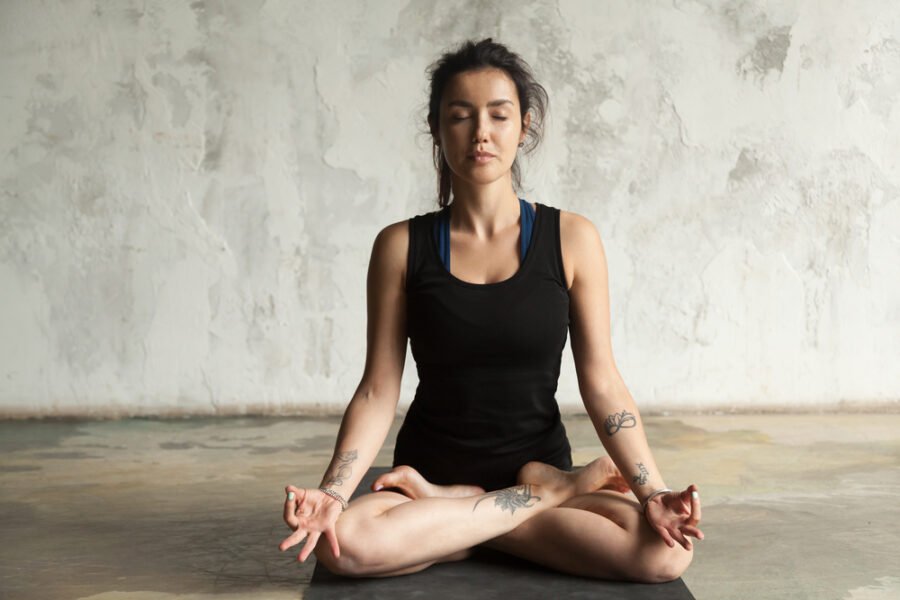
Several studies suggested that meditation with traditional treatments can help to improve the quality and quantity of sleep along with it is also helpful to reduce stress.
Caution About Herbal and Dietary Sleep Aids.
Because the Food and Drug Administration has not mandated manufacturers to show evidence of dietary supplements being effective or safe, so you must talk to your doctor before taking any herbal supplements or other OTC (OTC-Over-Counter) products. However, some products can be harmful for your overall health.
| Footnote. There are different ways through which insomnia can be treated. First, lifestyle factor is the major thing to treat insomnia. But if in case, it’s not cured then doctors take different steps like some therapies or medications. |
Risks and Complications of Insomnia.
Chronic insomnia has associated with serious health risks. According to the National Institute of Health, it can increase mental health problems along with the risk of overall health complications, such as;
Increase risk of therapeutic conditions. These include;
- Stroke.
- Asthma attacks.
- Epileptic attack.
- Weakened immune system.
- Sensitivity to pain.
- Swelling.
- Fatness.
- Diabetes Mellitus.
- High blood pressure.
- Heart disease.
Mental health disorders. These include;
- Depression.
- Anxiety.
- Confusion and frustration.
Other complication are;
- Lack of focus during work or study.
- Decrease sex drive.
- Hamper memory.
- Degrade decision making ability.
| Footnote. As per National Institute of Health, insomnia can increase your mental health problems as well as the risk of overall health, like it can increase the risk of accidents with lack of confidence, anxiety and depression etc. |
What to Avoid in Insomnia?
The following tips are aimed at helping to recover from temporary insomnia and increasing the chances of having a good sleep at night;
- Shift your bedroom to an attractive location. Keep the room organized. Make sure you have the right beds and mattresses to meet your needs. Substandard mattresses can cause muscle pain and hamper sleep.
- Use bedding only to sleep. Avoid using it for watching TV, eating, working or any other activity. If you want to sit in bed at night and read, just read the entertaining books.
- Doctors mostly suggest “Reconditioning Therapy” to treat insomnia. With this method people associate the bed for sleep in a new way. If you find yourself unable to sleep, leave the bed and move to another room, so that you just use the bed to sleep and not to wake up.
- Make a fixed pattern on regular basis for sleep and wake up. As a result, your body will also adapt itself internally according to that pattern and prompt you to sleep and wake up at the stipulated time. It’s a good way to get started – get up at the same time every day, even at weekends.
- No matter how sleepless the day is, do not take a nap. A nap in the afternoon can be difficult to sleep at night. Taking extra sleep on weekends can worsen your regular sleep patterns and worsen midweek insomnia conditions.
Other Precautions to Avoid Insomnia.
- Limit the intake of caffeine in the afternoon and evening. Remember that eating chocolate and drinking unhealthy beverages also increases the amount of caffeine in the body.
- Reduce the alcohol intake to get rid of it or do not drink any alcoholic beverages a few hours before bedtime. Excessive amounts of alcohol at any time of the day can disrupt sleep patterns and lead to unsatisfactory sleep.
- Insomnia can also cause due to frequent cigarette smoking. Make a habit of exercising a little in the day, but do not exercise before bedtime.
- Eat light food in the evening. Consuming excessive food in the evening or just before going to bed can hamper your sleep.
- Make a habit of some things before going to sleep. Try to free your mind from disturbing thoughts before bedtime and engage in casual and entertaining activity such as reading book, listening to music or watching an entertaining movie.
What to Eat During Insomnia?
- Cherry juice – Citrus beverages contain a hormone called melatonin, which controls sleep.
- Milk – Milk contains an amino acid that is known as tryptophan. Drinking hot milk at night provides you a better and quality sleep.
- Whole grains – Magnesium is found in barley, buckwheat. Which helps the muscles to work smoothly and calm you mind.
- Complex carbs – pods and rice, especially jasmine rice with its high glycemic index are digests slowly as well as sweet potato is a wonderful source of complex carb, as they contain potassium which helps to relax the muscles and provide you a better sleep.
- Herbal tea – Herbal tea has a sharp aroma, but its not that much effective in the problem of insomnia. It is caffeine free, which helps people to calm down before bedtime.
- Banana – Banana is helpful for sleeping disorder, as it naturally contains magnesium and potassium that relax muscles.
Apart from the above mentioned way, insomnia can also be cure through home remedies. Lets know how home remedies helps to cure insomnia.
Home Remedies for Insomnia.
Here are some home remedies for insomnia:
Honey for Insomnia.
Honey is considered to be very beneficial for our health. Similarly, it is also effective in eliminating the problem of insomnia. Using honey in regular basis helps you to get rid of the problem of insomnia. Honey works to relieve sleep problems. It is recommended to use honey before bedtime.
Castor Oil for Insomnia.
Castor oil is also effective for relieving insomnia, which allows you to take recourse to sleep. It positively promote a better sleep. This oil has been used for a long time to cure insomnia. Therefore, you should apply this oil over your eyes before bedtime every day and mash with light hands.
Fish Oil for Insomnia.
Fish oil contains plenty of omega-3 fatty acids and is considered effective for insomnia. According to a study, omega fatty acids can work to cure sleep disorders. So people those who are facing the problem of insomnia can use fish oil. You can also use fish oil in the form of capsules.
Garlic for Insomnia.
Garlic is also considered to be good enough for our overall health, it works to address many of our problems. You can also consume this in insomnia. According to a report, garlic can help to relieve depression and anxiety, which can be used to bring sleep from the sedentary. You can add a piece of garlic with milk and boil it and must consume before bedtime at night in daily basis.
| Footnote. Apart from the medications there are some effective home remedies are also available to cure insomnia naturally like eating garlic, Fish oil and honey etc. |
Bottom Line.
Insomnia, is a type of disorder associated with sleep. A person who suffers from it has face difficulty in sleeping or is not able to sleep completely. As a result, he does not get enough sleep and feels tired with other health complications. If it continues to dominate for more days, then it may be vulnerable to a variety of physical and mental problems.
Therefore, a proper prevention and treatment need to be done to cure insomnia. Some people may not prefer to consult doctor. In that case, the person prefer home remedies to cure insomnia.
+2 Sources
Freaktofit has strict sourcing guidelines and relies on peer-reviewed studies, educational research institutes, and medical organizations. We avoid using tertiary references. You can learn more about how we ensure our content is accurate and up-to-date by reading our editorial policy.
-
1. PARADOXICAL INTENTION FOR INSOMNIA; https://div12.org/treatment/paradoxical-intention-for-insomnia/
-
3. ROZEREM; https://www.rxlist.com/rozerem-drug.htm

 Workout
Workout
 Meditation
Meditation
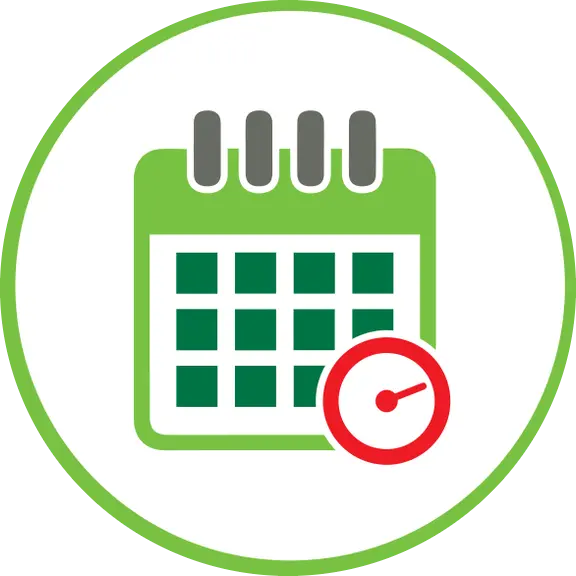

 Stories
Stories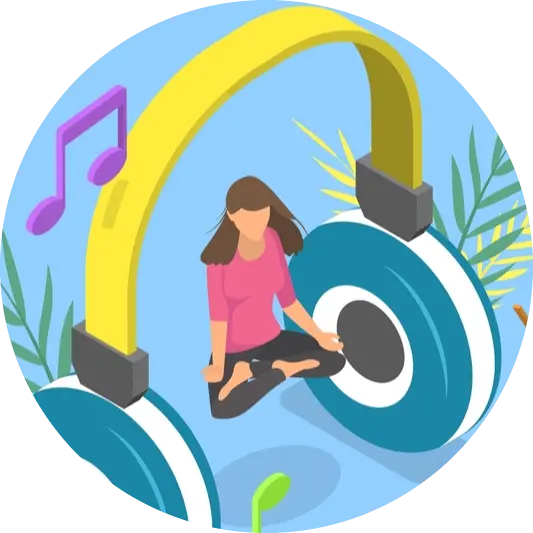


 Podcast
Podcast E-book
E-book